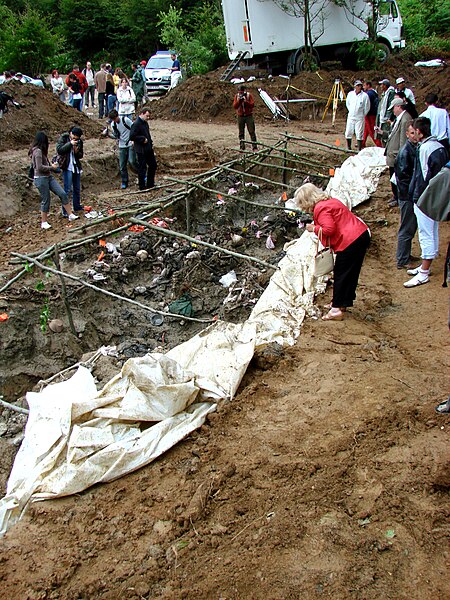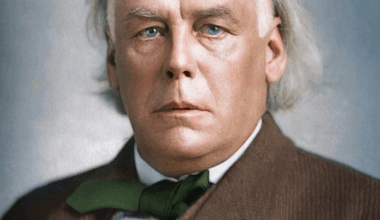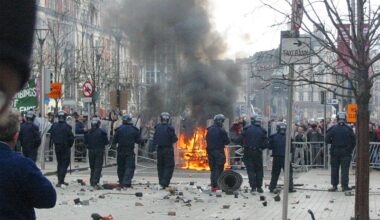The Myth of American Idealism: How U.S. Foreign Policy Endangers the World is a new book by Noam Chomsky and Nathan J. Robinson, but its contents are anything but new. It functions as a sort of Chomsky primer, which means introducing readers to the postwar history of U.S. foreign policy as one long record of atrocity and hypocrisy. Chomsky and Robinson don’t just attempt to demonstrate that the United States fails to embody its idealistic self-conception as a defender of freedom and democracy—they argue that America is a malignant force in the world. In other words, they repeat the argument Chomsky has been making for sixty years.
While The Myth of American Idealism includes some material about recent events, such as the Russian invasion of Ukraine, most of it is just rehashed arguments Chomsky has made many times before. ‘If the Nuremberg standards were consistently applied’, Chomsky and Robinson write, ‘every president since the Second World War would have to be convicted and sentenced.’ This is a deodorized version of a line from a speech Chomsky delivered three and a half decades ago: ‘If the Nuremberg laws were applied, then every post-war American president would have been hanged.’ Perhaps Robinson or some sensible editor at Penguin Random House suggested the more delicate wording this time around.
Any reader with even a passing familiarity with Chomsky will find recycled material throughout much of the book. Chomsky and Robinson argue that Barack Obama and George W. Bush are ‘indisputably’ among the ‘world’s leading terrorists.’ They observe that Osama bin Laden had a long list of perfectly rational grievances against the United States that explain why he orchestrated the September 11 attacks. They believe the Soviet Union had ‘just as much justification’ for dominating Eastern Europe as the United States has for maintaining its NATO and East Asian alliances to check Russia and China today—never mind that America’s allies (including many former Soviet states) actually choose to join institutions like NATO, unlike members of the Warsaw Pact. They explain that Americans would have rejected most elements of post-World War II U.S. foreign policy if only they weren’t so heavily propagandized.
The Myth of American Idealism urges readers to acknowledge a ‘very simple ethical point: It is of little moral value to condemn the wrongdoing of someone else and ignore one’s own.’ This is an argument Chomsky has been making for decades. In a 1986 lecture, Chomsky said: ‘My own concern is primarily the terror and violence carried out by my own state.’ He later explained that it’s ‘very easy to denounce the atrocities of someone else. That has about as much ethical value as denouncing atrocities that took place in the 18th century.’ This has always been the guiding principle of Chomsky’s analysis of U.S. foreign policy. It would presumably mean that Western writers who exposed, say, the totalitarian nightmare of communism—such as George Orwell—were morally vacuous. Chomsky has expressed admiration for Orwell’s powerful exposé of Stalinist subversion during the Spanish Civil War, Homage to Catalonia. But seeing as Orwell didn’t have any responsibility for the crimes of the Soviet Union, a polemic against Neville Chamberlain would have had more ‘ethical value’, on Chomsky’s view.
Chomsky and Robinson aren’t wrong that the United States has a long and ugly history of committing and permitting atrocities. Most of the book is a summary of these terrible episodes, such as the carpet bombing of Cambodia and America’s support for brutal dictatorships—from Suharto in Indonesia to Saddam Hussein when he was committing his worst crimes in the 1980s. The problem with this catalogue of horrors, as always with Chomsky’s work, is that it generates a completely distorted historical picture by focusing on every negative outcome of U.S. foreign policy without providing so much as a paragraph of context.
***
When Chomsky and Robinson discuss the war in Ukraine, they spend page after page explaining that Vladimir Putin had reasonable security concerns that entirely explain why he decided to launch the most destructive conflict in Europe since World War II. They cite just about every canard that exists about the West’s alleged responsibility for the war, such as Secretary of State James Baker’s assurance to Soviet leader Mikhail Gorbachev that NATO wouldn’t move ‘one inch’ eastward after German reunification at the end of the Cold War.
In her 2021 book Not One Inch: America, Russia, and the Making of Post-Cold War Stalemate, Mary Sarotte explains that Baker’s promise was never official U.S. policy and President George H.W. Bush rejected it shortly after it was made. Beyond their dubious history, it’s interesting that Chomsky and Robinson, who accuse the United States and the Soviet Union of colluding in a global imperial carve-up during the Cold War, believe that a verbal promise made on a whim by Baker to Gorbachev should permanently determine the alliances European countries are allowed to join. Sovereignty and self-determination on the continent apparently don’t matter to Chomsky and Robinson—they only care about placating dictators. They cite Anatol Lieven, who described the Ukraine war as one of the ‘most easily solved’ problems in the world. Here’s how they summarize his solution:
The U.S., Lieven wrote, should drop the goal of NATO membership for Ukraine and pressure the Ukrainian government to agree to autonomy for the Donbas region. A natural settlement for the issue would have declared Ukraine to be a neutral country, without participation in any military alliance.
Chomsky, Robinson, and Lieven are correct that total surrender is a simple solution. But they’re wrong that this would placate Putin, who has made it clear from the beginning that he won’t tolerate the survival of the Zelensky government or any Ukrainian government that isn’t a Russian puppet. Moscow wants nothing less than the total destruction of Ukraine as a viable independent state, which Chomsky and Robinson would know if they had read any of Putin’s speeches or writings. Chomsky and Robinson often give themselves away with the language they use: they say Donbas should be granted ‘autonomy’, which is another word for ‘Russian control’. They say Germany was initially reluctant to send tanks to Ukraine due to the ‘country’s post-World War II commitment to stay out of the business of mass killing.’ ‘Mass killing’ is one way to put it, ‘helping a besieged country defend itself from mass killing’ is another.
Chomsky and Robinson use a clever rhetorical tactic to fend off charges that they’re apologists for Putin or any other anti-American dictator. They insert brief disclaimers that make it sound as if they’re very critical of atrocities like the war in Ukraine, which can then be thrown at critics who argue that they’re too soft on the Putins of the world. ‘Putin’s decision to launch a criminal war of aggression against a neighboring state cannot be excused’, they declare. But 99 per cent of what they write about the war is an exercise in obfuscation and blame deflection—their central point is that NATO (and particularly the United States) must be blamed for Putin’s imperialist aggression. Chomsky and Robinson systematically offer the most benign possible interpretations of the motives of America’s enemies, while they assume that the United States is always motivated by the desire for power, exploitation, and subjugation.
Take, for instance, their summary of Osama bin Laden’s ‘grievances’. According to Chomsky and Robinson, Bin Laden was primarily motivated by hostility to American foreign policy—from the United States’ support for Israel to the suffering of Iraqi children under sanctions in the 1990s. They even mention that Bin Laden ‘complained that we had “destroyed nature with your industrial waste and gases” and refused to sign the Kyoto Protocol.’ It’s remarkable that Chomsky and Robinson cite Bin Laden’s concerns about environmental degradation but don’t say a word about his animating obsession: the restoration of the seventh-century Islamic empire. They briefly acknowledge Bin Laden’s antisemitism but conclude that ‘violent religiosity’ can’t explain why al-Qaeda massacred 3,000 civilians on September 11. It didn’t matter that Bin Laden was a zealot and mass murderer who wanted to restore the Caliphate—he had perfectly good reasons to hate the United States.
In another suggestively worded sentence, Chomsky and Robinson note that Bin Laden’s ‘justification for attacking civilians is unpersuasive.’ Bin Laden’s case for using civilian airliners as missiles to slaughter even more civilians is merely unpersuasive. After all, Chomsky and Robinson argue, his belief that citizens of democracies are responsible for the actions of their government doesn’t apply to the United States, as he ‘ignores the U.S. government’s efforts to keep citizens in ignorance of its policies through propaganda.’ If Americans were better informed about the actions of their government, would Bin Laden have had a more persuasive case that they are fair targets for theocratic murderers?
Speaking of unpersuasive arguments, Chomsky and Robinson’s critique of the war in Afghanistan includes analysis like this: ‘When the Oklahoma City bombing was found to have been perpetrated by a white supremacist associated with ultraright militias, there was no call to obliterate Idaho or Montana.’ Chomsky and Robinson evidently can’t distinguish between an isolated case of homegrown terrorism and an act of war carried out by an international terrorist group that had state support.
They also note that the war in Afghanistan failed to meet the ‘applicable legal standard’, which is that ‘violence in self-defense is justified only in the case of armed attack.’ How would they describe the destruction of the World Trade Center, the hole in the side of the Pentagon, and the smouldering aircraft wreckage in Pennsylvania? Was September 11 something other than an ‘armed attack’? They conclude that the ‘attack on Afghanistan was a major crime, with no justification whatsoever.’ Well, except for the 3,000 dead civilians and the Taliban’s support for the organization responsible.
***
The Chomskian worldview is static. While Chomsky was right to be critical of the Vietnam War and other brutal aspects of U.S. foreign policy during the Cold War—such as the subversion of governments and complicity in gross human rights violations across Central and South America—he’s incapable of recognizing that a shift took place after 1989. For example, the U.S.-led NATO interventions in the Balkans in the 1990s represented a genuine departure from Cold War realpolitik, but Chomsky and Robinson make no such distinction.
It took the Clinton administration far too long to forcefully intervene in Bosnia—Slobodan Milošević’s forces had waged war on the country for years starting in 1992 and were responsible for atrocities such as genocide and mass rape. It wasn’t until the war dragged on for three years and the evidence of atrocities became too dire to ignore that the U.S. pushed for more direct NATO involvement. For example, the Srebrenica massacre—the first genocide in Europe since World War II—took place in July 1995, and the NATO campaign (Operation Deliberate Force) began the following month. It’s difficult for Chomsky to fit the NATO intervention in Bosnia into his worldview. The Clinton administration expressed no eagerness to get involved in Bosnia, and once it finally did so, the war came to an end a couple of months later. The primary motivation for the NATO air campaign was to defend civilian populations under siege, and the war was a pivotal moment in the shift toward humanitarian interventionism after the Cold War.
These are the reasons Chomsky and Robinson all but ignore Bosnia in The Myth of American Idealism. Instead, they focus on another Balkan conflict. The Kosovo War began when clashes between Albanian separatists (the Kosovo Liberation Army, or KLA) and Serb paramilitaries triggered a larger conflict in early 1998. By March 1999, Yugoslav forces were engaged in large-scale human rights abuses against Kosovar Albanians, including ethnic cleansing. This prompted another NATO campaign on 24 March, which lasted until June when the war was brought to an end.
Over 90 per cent of Kosovar Albanians (more than 1.45 million people) were displaced during the war. A report published by the OSCE Kosovo Verification Mission found that these expulsions were the result of ‘evident strategic planning’, while the ‘Arbitrary killing of civilians was both a tactic in the campaign to expel Kosovo Albanians, and an objective in itself.’ The report also found that rape was used as a weapon of war, arbitrary arrest and detention were rife, and there was a ‘specific focus—for killings, arbitrary detention and torture—on young Kosovo Albanian men of fighting age.’
According to Chomsky and Robinson, the war crimes carried out by Yugoslav forces can be blamed on—you guessed it—the United States. They write that the ‘intervention made the situation far worse than it had been, with NATO triggering Serbian reprisals against the Albanians the operation was supposed to protect.’ In other words, when the U.S. and its allies attempt to halt an ethnic cleansing—which they successfully did in a matter of months—they’re responsible for the crimes against civilians carried out by the ethnic cleansers themselves.
Chomsky and Robinson write that the rationale for the Kosovo intervention was that ‘Milošević had proved difficult to control and therefore needed to be kept in line.’ This makes it sound as if Milošević’s only crime was resisting American hegemony instead of shelling civilians and committing genocide. Chomsky and Robinson know that crimes like Srebrenica can’t be blamed on NATO, so they just don’t bother acknowledging those victims. Bosnia receives only a couple of neutral mentions in the book because it doesn’t fit the narrative. Srebrenica doesn’t come up.

When Slobodan Milošević’s forces commit genocide and lay siege to cities, America is to blame. When Putin launches a catastrophic unprovoked war in Ukraine, America is to blame. When theocratic murderers fly airliners full of civilians into buildings full of civilians, America is to blame. The people who actually planned these genocides and wars and terrorist atrocities were always reacting to something the United States did, and according to Chomsky and Robinson, they often have a point.
Chomsky and Robinson credulously accept the most ludicrous and cynical rationalizations presented by the United States’ enemies. Take the invasion of Ukraine, for instance. They don’t even consider the possibility that Putin wants to destroy Ukraine because he believes it should rightfully be a part of Russia—or because the existence of a successful, Westernized Slavic democracy next door poses a threat to his regime. They believe the invasion can be entirely explained by Moscow’s legitimate fear that NATO would eventually take some form of aggressive action against Russia. They even note that this fear ‘comes about in part because in the twentieth century, Russia was invaded twice by future NATO member Germany.’ If Chomsky and Robinson could imagine Angela Merkel, Olaf Scholz, or Friedrich Merz spearheading a Western invasion of Russia, they should go ahead and say so. But Putin’s rationalization of the Ukraine war as a ‘special military operation’ to ‘denazify’ a hostile neighbour and defend the motherland from imminent NATO aggression was always absurd.
Chomsky hasn’t updated his worldview in over half a century, which is why The Myth of American Idealism often feels as if it was written decades ago. ‘In the United States now’, Chomsky and Robinson write, ‘there is essentially one political party, the business party, with two factions.’ This argument might have made sense in the Clinton years, when there was a neoliberal consensus in Washington and both parties were committed to maintaining the U.S.-led postwar international order. But the era of neoliberalism and bipartisan foreign policy consensus has come to an end. The Trump administration is actively hostile to free trade and the American alliance system, and the president of the United States now sounds strangely similar to Chomsky when he discusses the United States’ role in the world. And this development represents the gravest threat to global security and stability in generations.
***
President Trump shares Chomsky and Robinson’s habit of attributing responsibility for the war in Ukraine to anyone but the imperialist dictator who launched it. Last year, he blamed Ukrainian President Volodymyr Zelensky for the war. He refuses to describe Putin as a dictator, but has no problem using that label for Zelensky. He accuses the United States of overseeing a ‘proxy battle’ in Ukraine and claims that the ‘globalist neocon establishment’ is ‘perpetually dragging us into endless wars’ and ‘pretending to fight for freedom and democracy abroad’. He says the ‘greatest threat to Western civilization today is not Russia. It’s probably, more than anything else, ourselves’. Chomsky couldn’t have said it any better.
The Senate recently confirmed former Hawaii Rep. Tulsi Gabbard as Trump’s Director of National Intelligence, and like many in Trump’s orbit, she has a long history of regurgitating Russian propaganda. Immediately after the invasion, Gabbard declared: ‘This war and suffering could have easily been avoided if Biden Admin/NATO had simply acknowledged Russia’s legitimate security concerns regarding Ukraine’s becoming a member of NATO.’ She met with Syrian dictator and Russian client Bashar al-Assad in 2017, contradicted U.S. intelligence assessments about chemical weapons attacks launched by the regime (relying instead on an academic who frequently contributes to Russian state media), and obsessively lobbied against American involvement in the Syrian Civil War. She accused the United States of supporting terrorists in Syria by backing the opposition to Assad—a Kremlin talking point. When she was nominated, Russian state media celebrated.
‘After the dissolution of the Soviet Union’, Chomsky and Robinson write, ‘the purpose of the North Atlantic Treaty Organization (NATO) became unclear.’ You may think this purpose suddenly became clear once again when Russian tanks rolled into Ukraine in early 2022, but Chomsky and Robinson disagree. They cite the political scientist Richard Sakwa, who argues: ‘NATO exists to manage risks created by its existence.’ This appears to be the view of the Trump administration as well. Trump didn’t just once describe NATO as ‘obsolete’—he has also questioned the value of the Article V collective defence provision, repeatedly expressed his desire to pull the United States out of the alliance, and declared that the Russians should do ‘whatever the hell they want’ to any NATO country that doesn’t spend what he regards as enough on defence.
During Defence Secretary Pete Hegseth’s first trip to Europe in mid-February, he announced that a return to Ukraine’s pre-2014 borders was an ‘unrealistic objective’ and said Kyiv wouldn’t be joining NATO. This is exactly what Putin wanted to hear, and negotiations to end the war haven’t even started. Meanwhile, Trump boasted about having an amicable conversation with Putin during which the two discussed their shared commitment to ‘common sense’, the alliance between the United States and the Soviet Union during World War II, future visits to Moscow and Washington, and the start of negotiations to end the war. As an afterthought, Trump said he would ‘inform’ Zelensky about the call. He clearly wants to bypass Kyiv as much as possible in the negotiations.
Trump recently sent Secretary of State Marco Rubio to Saudi Arabia to negotiate with a Russian delegation led by Foreign Minister Sergey Lavrov. He asked for no concessions from Moscow before granting this meeting—to which Zelensky and the United States’ European allies were not invited. Chomsky and Robinson have long argued that the Western alliance is a pernicious source of global instability and an instrument of imperialist violence. They must be delighted that the United States is unilaterally dismembering that alliance right before our eyes.
This reflects the essential parochialism and authoritarianism of the MAGA movement. At the Munich Security Conference, Vice President J.D. Vance—who once declared ‘I don’t really care what happens to Ukraine one way or the other’—delivered a speech in support of integrating the far right, pro-Russia AfD into mainstream German politics. ‘The threat that I worry most about vis-a-vis Europe’, he said, ‘is not Russia, not China, it’s not any other external actor. What I worry about is the threat from within…’ During the 2024 campaign, Trump said: ‘The enemy from within is more dangerous than China, Russia and all these countries.’
The Trump administration has demonstrated that these claims were more than empty bluster. Trump is threatening America’s European allies with a trade war while simultaneously demanding that NATO countries increase defence spending to 5 per cent of GDP (the United States spends around 3.4 per cent). He’s holding talks with Russian officials over the fate of Ukraine without Kyiv, and his special envoy for Ukraine and Russia Keith Kellogg recently declared that European countries won’t be at the negotiating table. This is an extraordinary insult to Europe, which has contributed tens of billions of dollars to support Ukraine. Just as Trump’s envoy was dismissing America’s European allies as irrelevant, Hegseth was demanding that they ‘provide the overwhelming share of future lethal and nonlethal aid to Ukraine.’ Hegseth also claimed that ‘stark strategic realities prevent the United States of America from being primarily focused on the security of Europe.’
While some Trump administration officials (like Vance) have argued that the shift away from Europe means a pivot toward Asia, Trump has the same transactional attitude toward America’s East Asian allies that he has toward Europe. Trump says ‘We’re no different than an insurance company’ and ‘Taiwan doesn’t give us anything.’ He argues that Taipei should spend 10 per cent of its GDP on defence—a ridiculous demand, as this would be roughly 80 per cent of the country’s national budget. Trump’s surrender in Ukraine has dark implications for Taiwan, which is why Taiwanese Vice President Bi-khim Hsiao has observed that ‘Ukraine’s success in defending against aggression is so important also for Taiwan.’ Trump also has a long history of treating Japan and South Korea with the same reckless disregard that he has toward Europe, threatening to withdraw troops if both countries don’t drastically increase defence expenditures.
Of course, there are stark political divergences between Chomsky and Robinson and MAGA nationalists. But in one fundamental sense, Chomsky and Robinson should be pleased that Trump is in power. Like them, he believes the concept of American idealism is a ‘myth’. He says the United States only ‘pretends’ to fight for freedom and democracy around the world. Trump is the first American president who rejects the liberal international order Chomsky and Robinson have always held in the deepest contempt. They may not be comfortable with certain elements of Trump’s worldview (they can’t be happy about his plan to evict the inhabitants of Gaza and turn the strip into one big resort, for instance), but the world he wants to build looks strikingly similar to the one they have always wanted.
Trump wants to dismantle the U.S.-led global security architecture that Chomsky and Robinson believe is the biggest threat to global stability and peace. We’ll soon find out what it looks like when American idealism is replaced by America Firstism. Those who have spent decades arguing that there’s nothing worse than American leadership are about to see what the world looks like without it. We’ll see if they like what they get.
Related reading
How Trump will reshape America’s global role in his image, by Matt Johnson
Donald Trump is an existential threat to American democracy, by Jonathan Church
Donald Trump, political violence, and the future of America, by Daniel James Sharp
Christopher Hitchens and the value of heterodoxy, by Matt Johnson
A view from Kyiv: Ordinary life during Russia’s invasion of Ukraine, by Emma Park
Russian history, Russian myths: review of ‘The Story of Russia’ by Orlando Figes, by Mathew Giagnorio







Your email address will not be published. Comments are subject to our Community Guidelines. Required fields are marked *
Donate